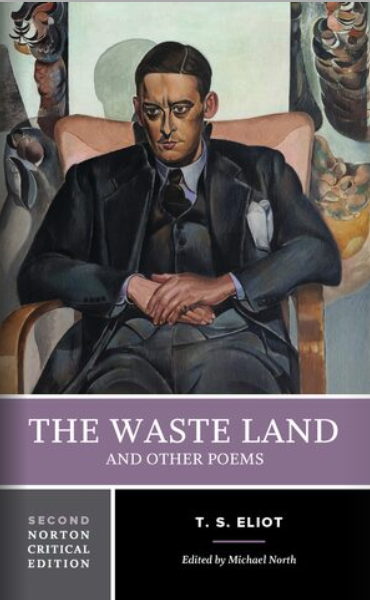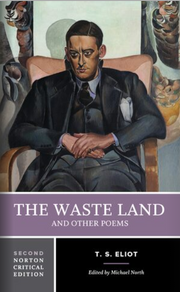Description
Author: T. S. Eliot
Publisher: W. W. Norton
“This splendid new edition of T. S. Eliot’s The Waste Land will elucidate his legacy for a rising generation of students, teachers, and general readers. The inclusion of poems from Eliot’s first two collections, a substantial selection of background material and scholarship, expert annotation, and Michael North’s learned and incisive introduction detailing the development of Eliot’s poetic coming-of-age make this an invaluable resource.” —Anita Patterson, Boston University
This Norton Critical Edition includes:
The first American edition of The Waste Land, with Eliot’s notes, joined by Prufrock and Other Poems (1917) and Poems (1920).
Updated and expanded introductory materials and footnotes by Michael North.
Extensive contextual materials on sources for The Waste Land, its composition, and publication history for all three featured collections. Eleven reviews and reactions to Eliot’s works include those by Ezra Pound, Virginia Woolf, and Ralph Ellison.
Five new critical essays examine the themes and legacy of Eliot’s hallmark poems alongside eight classic literary critiques.
A chronology and a selected bibliography.
About the Series
Read by more than 12 million students over fifty-five years, Norton Critical Editions set the standard for apparatus that is right for undergraduate readers. The three-part format—annotated text, contexts, and criticism—helps students to better understand, analyze, and appreciate the literature, while opening a wide range of teaching possibilities for instructors. Whether in print or in digital format, Norton Critical Editions provide all the resources students need.
“This splendid new edition of T. S. Eliot’s landmark poem provides an authoritative 1922 edition of the text, the most vital materials for understanding it, and, for this supremely allusive poem, a collection of essential sources. It also brings together Eliot’s most pertinent essays and all the English poems in his earlier books, as well as an illuminating array of reviews and criticism published over the last hundred years.” — Jahan Ramazani, University of Virginia


